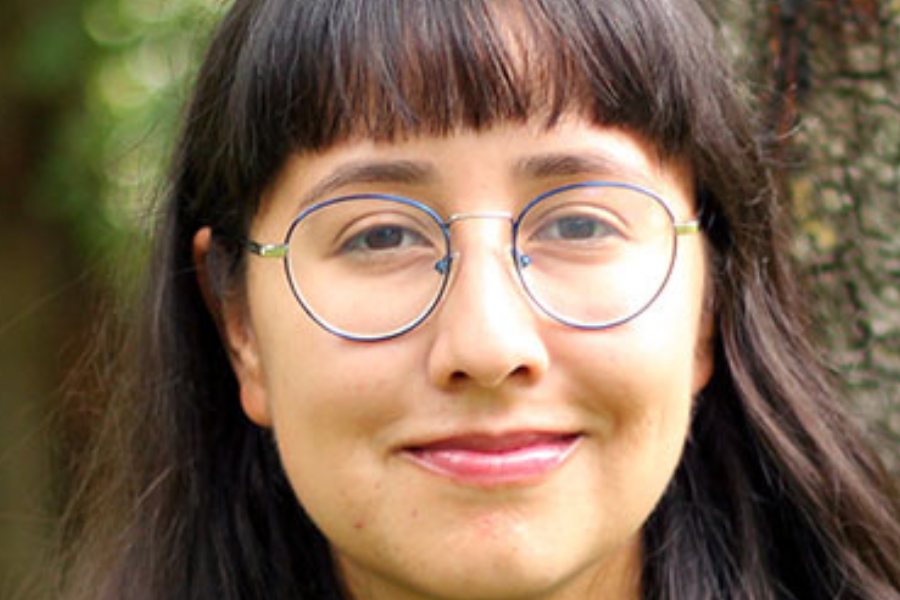Monica Paniagua Montoya

"To become an independent thinker"
College: Arts and Sciences
Degree Program: Ecology and Evolution
Degree: Doctoral
Award: Howard Hughes Medical Institute Gilliam Fellowship (2023)
Why FSU?
When I realized that I wanted to pursue a doctoral degree in FSU's Department of Biological Science, I applied to Drs. Nora Underwood and Brian Inouye's lab. They are prominent researchers in my chosen sub-field of plant-insect interactions. In addition to their research being aligned with my own interests, I also chose their lab because it seemed like the type of environment that could challenge and help me achieve my purpose for pursuing a doctorate (to become an independent researcher).
Motivation to pursue a graduate degree
As an undergraduate, I got the opportunity to participate in a few research projects. Through these experiences, I learned that I enjoy the process of research; I like to read and discuss scientific literature, ask questions, and devise experiments. Following graduation, I worked as a research technician. My job involved collecting population data of several rare plant species in the area for management and conservation purposes. Though my job was fun, I learned that collecting data was not enough for me. I wanted to be involved in the other parts of research, including asking questions, designing data collection methods, analyzing data, and disseminating results. In my field of ecology and evolution, a doctoral degree is usually required to be an ecological researcher, and thus I decided to pursue a PhD.
Importance and/or impact of research and work
As concerns about biodiversity loss become increasingly widespread, a major goal in ecology is to understand the ecological consequences of biodiversity. Though diversity can occur among species, considerable diversity can also occur within a species. We know very little, however, about how diversity within a species affects populations and ecological communities. My dissertation research examines how diversity within a species of herbivorous insect affects its population and interactions with other flora and fauna.
Career aspirations
My goal is to become a faculty member at a smaller college or university. I greatly enjoy teaching and mentoring other aspiring scientists, so I would like to have a career that will allow me to continue teaching and mentoring in addition to conducting research.
Advice for anyone considering graduate school
Do not sell yourself short. If you are interested in research, go for it! If you are uncertain about what you want to do career-wise, get some experience in the workforce first. Graduate school will always be here, and it is so much easier to do (or so I hear) if you are certain about your career aspirations.
Accomplishments during graduate career
I am proud to have been awarded the Howard Hughes Medical Institute Gilliam Fellowship. I was also recently awarded a small grant from the SimBio Foundation to develop a series of biology career videos in partnership with two organizations: Project Biodiversify and Data Nuggets. The idea behind these videos is to showcase the diversity of biology careers that one can pursue with a biology degree and to highlight the diverse experiences of biologists. I'm excited to work on this project!
